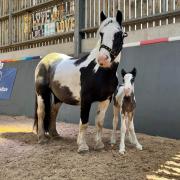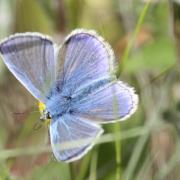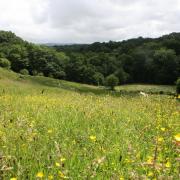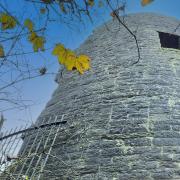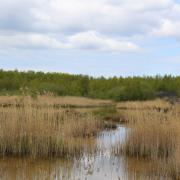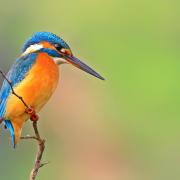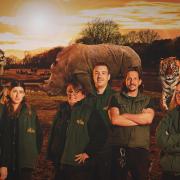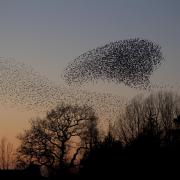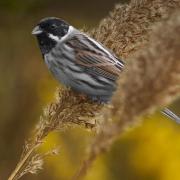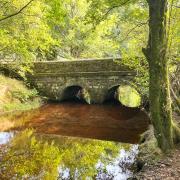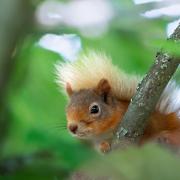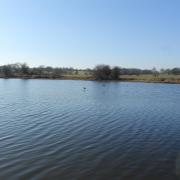For the first time in more than 700 years we can see wolves in the Lancashire countryside - and go walking with them. Sue Riley is on their trail. PHOTOGRAPHY: DARREN ANDREWS
Watching wolves run wild through a pine forest in the heart of the Lake District is an experience not easily forgotten. Neither is the first time a wolf licks and nuzzles your hand with the knowledge that it can hear your heartbeat from a few metres away, let alone when it is in physical contact with you. Such memorable, timeless moments were exactly what Dee and Daniel Ashman set out to create when they started their Walking With Wolves experience this year - in the very area where the last wolf in England was said to have been killed in the 14th Century.
The wolf pups have been quite a success for the couple’s Predator Experience business, but with group numbers limited to just four, the Walking With Wolves club still remains rather exclusive.
The experience – the only one like it in the north of England - starts at very close quarters; as you get into Daniel’s car the wolves are in their own enclosed space at the back, just centimetres from where you are sitting. Completely disinterested, they gaze and look away, living up to their reputation as aloof and mysterious. The short drive from the couple’s business at Ayside, near Cartmel, to the Graythwaite estate is full of stunning Lakeland scenery, but for many the most memorable one will be of those animals in the back.
When you pull up at the fenced off Graythwaite estate the couple calmly advise you not to bend down. Typical wolf behaviour is to hold each other’s faces in their mouths and as Dee says, ‘They do not apply pressure. But it could be scary.’ Then you are asked to make a fist and the wolves approach, sniff and lick it. When they’re happy they move away. ‘They are building up a dictionary of scents,’ explains Daniel. On the rare occasion they might jump up you are advised to turn your back. And that’s it, a short walk to the forest and they are let off the leash for an hour or so. Camouflaged against the environment it’s a stunning place to watch them run, playfight and dutifully return when whistled, with the promise of a food treat.
‘We wanted to create a different natural history experience. It’s a bit like a natural history programme and you get to take part,’ said Dee. ‘The closest we can get to a Canadian Redwood forest is this pine forest at Graythwaite,’ said Daniel.
The most common question of all their guests is ‘Will the wolves come back?’ The couple say because they provide such good meat for them – a mix of venison, beef and chicken – they always return. As a precaution they have learnt how to do a ‘back to the pack’ howl which when they both start doing it as the wolves disappear from sight and then return within seconds is truly impressive. ‘It’s a privilege to speak to another animal in their own language,’ said Dee. Equally as impressive is when both wolves start howling, an empty forest with dappled sunlight and two wolves howling to the sky. You can’t buy that sort of memory, although of course in this case that’s exactly what you are doing.
The pups have been kept in Dee and Daniel’s home so far and the couple believe they are viewed as pack elders who have commanded respect as they are very efficient at providing food. ‘They will not stray from the pack, there’s a wolf law if you like, you do not get any slouchers in a pack, they all have their job,’ said Daniel.
The couple, who have decades of experience with animals, had a long held dream of owning wolves which they set up Predator Experience four years ago. They fulfilled that last winter when they purchased the two brothers called Maska and Kajika from a private breeder in Scotland. The wolves - technically they should be called of Timber Wolf origin as their grandmother was a wolf who mated with a wolf dog - will reach adulthood next summer when they will have effectively doubled in size, weighing up to 55kg. It genuinely feels as though Dee and Daniel are running their business for the love of it rather than as a money making venture; they are certainly passionate about their environment and keen to share their knowledge and expertise. Full of information and fascinating stories they want to encourage people to think about the importance of predators in our ecosystem.
They also run a range of bird of prey experiences with owls, a golden eagle called Ben and Sapphira the sea eagle (so named because Dee requested her as an engagement present instead of a diamond ring). A fitting present as the couple met through the world of falconry: Dee was writing the syllabus for a falconry qualification (she previously worked as a police officer in Cumbria) and Daniel asked whether she had a hood for a golden eagle. They haven’t been apart since.
Their bird experiences have attracted visitors from as far afield as Dubai and Australia and now they hope the wolves will get the same attention. ‘We come away from every walk feeling inspired…it’s more of a feeling you get,’ said Dee. This is a couple on a mission to educate people about what we are doing to the planet while sharing a unique experience between man and wolf. A truly timeless experience.
Wolf wisdom
Humphrey Head, overlooking Morecambe Bay, is said to have been where the last wolf in England was killed in the 1390s. The story was it attacked a child in Cark and locals killed it with pikes. Bowland was one of their last refuges.
The DNA difference between a wolf and a chihuahua is 0.2 per cent, the same between a human and a chimpanzee
A wolf can do a slow run (lollop) for about 60 miles without stopping. Their top speed is about 40mph
Wolves have lots of different howls for different situations, including morning and grief howls
The myth of werewolves comes from the time of the Black Death when corpses were laid in open graves. Wolves would eat the cadavers and when spotted leaving the graveyards it created the folklore that the dead people had turned into wolves.
Always look a wolf (or dog) in the eye, according to Dee. She says if you look away and smile it can be viewed as an aggressive pose as you are baring your teeth and the animal can’t gauge your attentions as you won’t make eye contact.
For more information about Predator Experience go to www.predatorexperience.co.uk or ring 07500 956348. The Walking With Wolves experience costs £85.




